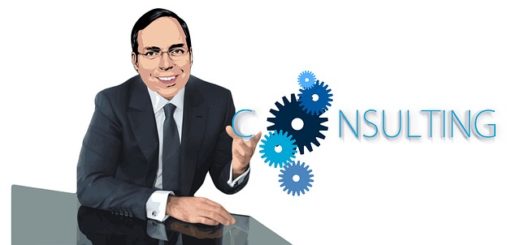Terms of Reference for Revision and Adoption of Child- Led Reporting and Monitoring System
PROJECT- EIDHR/2019/162330/54
Project title:
Increasing the capacity of the Human Rights Defenders for the protection and promotion of Children best interest in the Kenyan Juvenile justice system in the 3 counties of Nairobi, Kisumu and Kericho.
Donor: European Commission
Project location:
Nairobi, Kisumu and Kericho Counties of Kenya
Project goal:
The action intends to strengthen and support overall protection and promotion of the best interests and equal rights of children in the Juvenile Justice System.
Project Background
The overall goal of the project is to strengthen and support protection and promotion of the best interest and equal rights of children in the Juvenile Justice system, targeting both children in contact and in conflict with the law.
The long-term change envisions a strengthened Alternative Care system and awareness grounded in the best interests and rights of children separated from their families, resulting in courses of action in conformity with the principles of non-discrimination, protection, survival and participation.
This will be done by empowering local Human Rights Defenders (HRDs) and Human Right Defender Organizations (HRD) working at grassroots level within the Juvenile Justice process (including prevention level, early management procedures and pre-trial management levels, trial, post-trial and family reintegration level). The strategy is based on three pillars:
- Capacity building and improved coordination of Juvenile Justice Agencies;
- Service provisions through a comprehensive approach to rehabilitation, prevention, protection and promotion of children’s rights with a specific focus on children with special needs;
- Advocacy and public dialogue to support Human Rights Defenders and Human Rights Defender organizations on promoting the rights of children deprived of their liberty with a specific focus on diversion and Alternative Care mechanisms.
Project Outcome
Human Rights Defenders (HRDs) and HRD organizations at grassroots level have increase capacities to effectively improve Alternative Care Services for children in contact and in conflict with the law, with a special focus on children with special needs in the JJ System in three counties.
Project Outputs
1. HRDs, HRD Organizations and Government Institutions at grassroots level have improved skills and resources to strengthen the JJS protection mechanisms and institutions for provision of AC, legal, psychosocial, education, rehabilitation, reintegration to children with special needs or in need of care and protection.
2. HRDs and HRD organizations have improved skills and resources to create community awareness and sensitization and to build capacity of the community, families and children beneficiaries to actively participate in AC provision.
3. Best practices and guidelines on AC are embedded in the Kenyan Children Bill (2021), through advocacy and lobbying by HRDs and HRD organizations at grassroots level.
Background & Scope of the Assignment
Children in the justice system are rarely given opportunities to be heard. The proposed action intends to develop and implement appropriate mechanisms to ensure a genuine and sustainable participation and involvement of children held in GOK institutions where they are hardly considered rights-bearers and partners in decision-making. This action lays its bases on the previous experience of Cesvi and LRF in child led monitoring system, under the framework of the project “Stop Violence to Children: Putting “Justice” Back into the Kenya Juvenile Justice System” (EU, 2014 to 2016).
The proposed action envisions a structured dialogue between children and institutions through the participation of a delegation of children to the meetings. To this extent, children should be able to collect and analyze data through the child led monitoring system.
The consultant with the support of CESVI Project Manager and Directorate of Children Services (DCS) will take lead in the revision and adoption of a child led monitoring system across the three counties of Nairobi, Kericho and Kisumu.
The consultant will be expected to develop a system that will:
- Monitor the presence of children with disabilities within the JJS and children in conflict and in contact with law (specific standards will be identified).
- Map out harmful and discriminating practices, measure both the extent to which child rights violations occur across the pilot JJS areas and how the JJS legal, policy and social structures protect children from discrimination.
- Generate disaggregated data through information sources that will be identified across the JJS spectrum (police stations, Children Courts, and statutory institutions) by partners’ staff using specific monitoring tools (e.g. gender sensitive).
- Collect data on children and JJS personnel views and experiences through regular inspections, access to information through complaint mechanisms, child-line toll free database and existence of standards on disciplinary measures and procedures, etc. Areas of focus of data collection will include Police detentions, Children Court Proceedings, Statutory institutions.
- Assess whether the institution is in compliance with standards for children with disabilities and non.
- Assist in identifying the current advocacy strategies that will be used to address matters in the Juvenile Justice System.
The consultant will be expected to work with children assemblies and peer education clubs in the children statutory institutions in revising and adopting a child-centered monitoring and reporting system (CCMRS) on the condition and rights of children in custody and focusing on special needs children in terms of protection, accessibility, confidentiality, rights knowledge and participation. He/she will also work closely with other stakeholders in the Juvenile Justice System like Police Officers, Children Court Representatives, Children Remand Home staff.
The consultant will also be expected to focus on special needs component. The system should be able to collect and examine disaggregated data of children with special needs in the Juvenile Justice System across the three counties with the aim to identify the knowledge gaps including: the disclosure of adverse effects for children; various forms of disabilities that are prevalent among children in the JJS, views, experiences and perceptions of children with disability to further ensure due respect of their protection and further aid in addressing issues of children with special needs in the JJS.
Purpose of the Assignment
The purpose of the assignment is to develop a Child Led Reporting and Monitoring system and build the capacity of children in the 3 targeted counties remand homes on how to collect and analyze data through the system and generate reports.
Consultancy Tasks & Deliverables
- Develop a detailed inception report that will include the proposed work plan of execution of assignment, assessment, methodology and timelines.
- Successfully review and adopt the existing Child Led Reporting and Monitoring System.
- Review, revise and upgrade the existing tools in the Child Led Monitoring System, with a focus on children with special needs.
- Develop a mechanism that will facilitate individual reporting by children with a link to the main Child Protection and Information System (CPIMS).
- Develop a user guide for the Child Led Reporting and Monitoring System.
- Conduct meetings/workshops in the statutory children institutions for the creation of the awareness and capacity building related to the child led monitoring system through Children Assemblies and peer education clubs.
- Conduct capacity building workshops on the child led reporting and monitoring system to the Institution Department of DCS.
- Conduct a stakeholder validation workshop.
- Submit the final not later than 5 days prior to end of the consultancy.
Expected Outcomes
- Successful Child Led Monitoring System is reviewed and adopted.
- Workshops/meetings conducted across the three counties of Nairobi, Kericho and Kisumu on the Child Led Monitoring System.
- Mechanisms to facilitate individual reporting and feedback system are established, including access to formal complaints systems, collection of data on specific indicators, support and reporting offices, suggestion boxes, free telephone help line.
- Children are able to report abuse and speak in confidence, and accessing information and advice.
- Tools are developed and adopted to allow all children to express themselves, including special needs children.
- Data can periodically be updated and analyzed by children.
- Directorate of Children Services hold the institutional sustainability of the system
Key Beneficiaries:
Children, DCS Headquarter, Statutory Institutions Staff, Judiciary, Police, Probation
Consultancy Duration
3 Months- 1st April 2022 to 30th June 2022
Consultancy Location
Physical (Nairobi, Kericho and Kisumu) /Remote.
The consultant will be fully responsible of arranging the necessary ICT tools to fulfil the tasks of the consultancy.
The consultant will be fully responsible for arranging his /her logistics of travel and accommodation to fulfil the tasks of the consultancy.
The consultant will be accompanied by CESVI staff representative and DCS-institutions department during the workshops/meetings.
Quality & Ethical Standards
The selected consultant shall take all reasonable steps to ensure that the revision and adoption of the Child Led reporting and monitoring System is designed and conducted in a manner that respects and protects the rights and welfare of the child and stakeholders involved.
Together with Cesvi the consultant shall ensure all the participants in the activities provide an informed consent by signing forms aiming to the participation of the process.
Cesvi has zero-tolerance to sexual exploitation and abuse, sexual harassment, abuse of authority and also adheres to strict child safeguarding principles.
The selected consultant(s) will be expected to adhere to CESVI’s standards and principles and will therefore undergo rigorous reference and background checks. He/she will have to sign a statement signifying this agreement to CESVI (Prevention of Sexual exploitation and Abuse) PSEA policy.
The selected consultant(s) will provide a police clearance certificate.
The selected consultant(s) will attend a safeguarding induction session with Cesvi staff.
Reporting
The consultant, during the course of this assignment, will report to the EIDHR Project Manager.
Experience and Qualification
- The eligible consultant(s) must have a minimum of a Social Science bachelor’s degree in the fields of Education, Communication, Counselling, Psychology, Sociology, Child development with advanced ICT skills. Master’s degree is an added advantage.
- Proven knowledge of children matters is necessary.
- The consultant should have worked with a development organization before for at least 5 years and has a minimum demonstrable experience of undertaking similar desk reviews, as well as rapid assessments & or evaluations.
- The consultant should be conversant with NGO’s operation with focus on children, particularly those with special needs. Additional knowledge and experience on networks will be of great importance.
- S/he should have an experience in conducting workshops/meetings for children.
- Experience of working with diverse teams, using initiative and responding appropriately to constructive feedback.
- The consultant must show the ability to prioritize and manage time efficiently, including handling multiple tasks effectively and coordinate with the assigned supervisor.
- Knowledge and experience of E.U regulations is an added advantage .
How to apply
Interested candidate should submit technical and financial proposals including: Cover Letter; CV; academic and professional certificates; Sample of previous work in similar consultancies including references; Technical proposal that must include: work plan for the consultancy, methodologies to be used and the budget; If the consultant intends to work with as a team; they should indicate the team members and attach their CVs indicating the roles to be played by each team member; Team leader should be clearly indicated and his/her minimum qualification should be at Masters Level to the following address recruitment.nairobi@cesvioverseas.org by 11th March 2022. The Email Subject should appear as: EIDHR– Revision and Adoption of Child Led Reporting and Monitoring System








